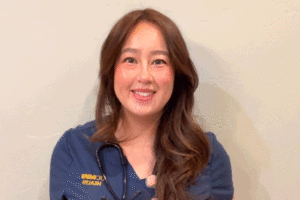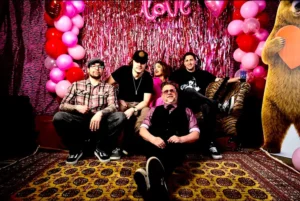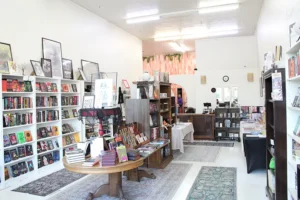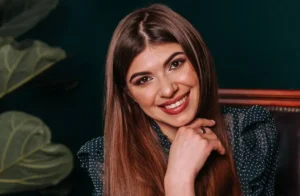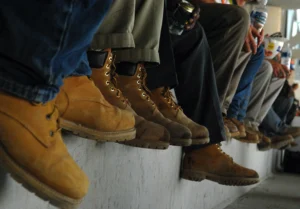Brian Copeland wears many hats: actor, stand-up comic, playwright, novelist and radio personality. But when you ask him to sum up what he does, he keeps it simple.
“I’m an entertainer,” Copeland says. “That’s it in a nutshell. I’m an actor, a writer, a comic, a novelist, a broadcaster. … I do everything entertainment.”
Copeland, who was recently inducted into the Bay Area Radio Hall of Fame, is known for his long-running solo show “Not a Genuine Black Man,” which has become a Bay Area institution. But he’s also an award-nominated mystery novelist and the creator of several acclaimed stage productions that mix comedy with social commentary and deeply personal storytelling.
Solving Sacramento spoke with Copeland about balancing mediums ahead of his appearance at this month’s “In a Nutshell,” which features the theme of “Bullies” and takes place Friday, Aug. 29 at The Sofia in Sacramento. He talked about writing his way into every corner of entertainment, and what keeps “Not a Genuine Black Man” heartbreakingly relevant two decades after its debut.
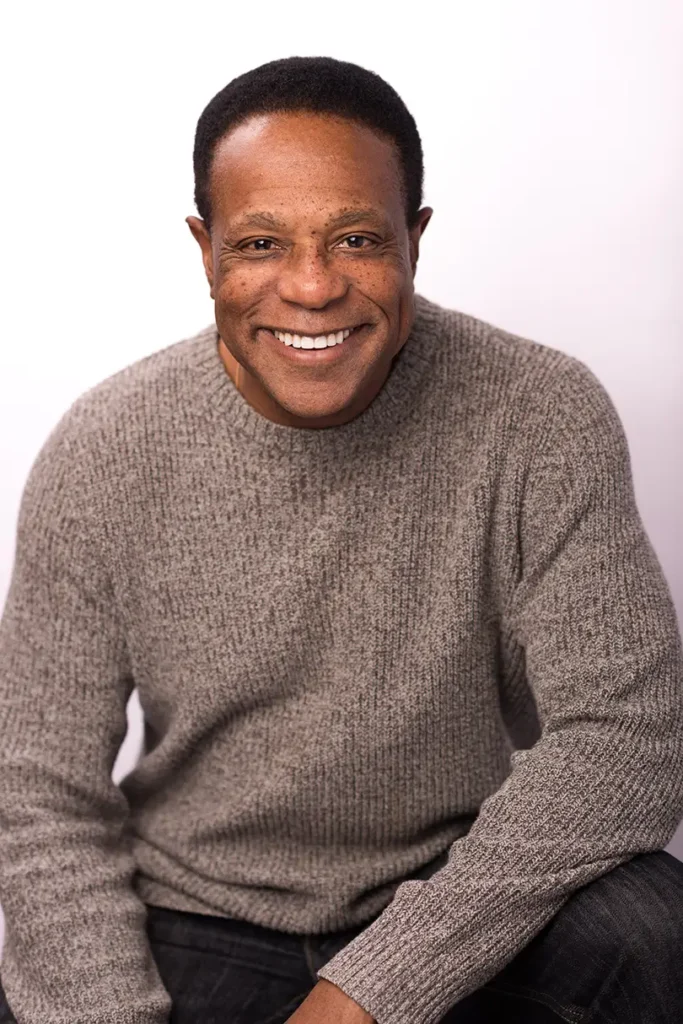
Is there one medium that tells stories best for you?
At the core of everything that I do is writing. I wrote my way on stage. I had my first column when I was 12 years old, in the San Leandro paper; once a week, 200 words to write whatever I wanted. Then I wrote my way into stand-up, I wrote my way into radio with sketches and I wrote my way onto television. I’m in the middle of my third crime novel right now. The first one just got nominated for Best First Mystery. Everything I’ve done, it all goes back to pen to paper. If I were not a writer, I wouldn’t be doing any of the other things that I do.
How has your relationship changed with “Not a Genuine Black Man” over time?
I bring it out periodically now. I brought it back for the 20th anniversary last year and the 1,000th performance. It’s been Off-Broadway. It’s been in 30 cities. We’re developing it for TV. The relationship is different because I’m sad that I have to bring it back again. I’m sad that it’s relevant 20 years later.
With the war that’s being waged by the federal government on diversity, with the erasure of the contributions of people of color and women, I think that this story, sadly, is even more relevant now than it was when I first did it in 2004.
I want to bring it to 10 school communities in the nine Bay Area counties — high school and junior college — and I want to do it at night so that parents and neighbors and people without kids in school can come and see it. It’s an exercise in empathy and an opportunity to start a conversation.
How do you balance humor with seriousness, especially in your mystery novels?
I didn’t start doing that until I started doing solo shows. I did 20 years of straight stand-up before I decided I wanted to try something dramatic. And what I’ve learned is the comedy and the drama feed and enhance each other. The comedy makes the drama more intense. If you’re laughing one minute and get kicked in the gut the next, that kick in the gut has a lot more power. And if you were kicked in the gut and then break out laughing, the laughter is a release — and it’s louder and more freeing.
In [my] novels, it’s the sibling banter between Topher and his sister Lynn. They all deal with serious issues. The first one is about cops who’ve shot unarmed people of color and weren’t prosecuted. The second is about two missing women — one white, one Black — and the disparity in media coverage. But the humor’s in there too.
How did you build the world of the Topher Davis series?
I decided 20 years ago that I wanted to write a crime thriller series. I’d been a mystery nut since I was a kid; Hardy Boys, Perry Mason, all of it. So I studied. I had a radio show at KGO and started having mystery authors on; Walter Mosley, Sue Grafton, Jonathan Kellerman, so I could ask how they do it. I got personal master classes.
Mosley taught me to create a protagonist people can root for. Grafton taught me the first step is knowing who did it and why before you start writing. I learned so much from all of them.
I’d never seen a detective who was a broadcaster, and I know that world. So I made Topher an investigative journalist. I also hadn’t seen a woman in the sidekick role, so I made his sister Lynn, the badass. She was an Army Ranger. He’s smart but can’t fight or shoot. She’s the one who handles the action.
They both work in San Francisco, but they live in the East Bay, so I write about the little places nobody else writes about. And every book has social commentary. I want folks to think about things in a new way.
When the pandemic hit, I was stuck at home with my 20-year-old musician son. I thought, why not finally write this book? So I did. By the end of lockdown, he wrote an album. I wrote “Outraged.”
World-building is fun. You can do whatever you want. You play god. You decide who lives, who dies. You get to be a fun god.
Was there a moment when you realized exactly why you do what you do?
Yes. I have a show called “The Waiting Period.” I deal with depression. I’ve had it my entire life. In 2008, my wife left, my grandmother died, I was in a horrible car crash, had spinal surgery and couldn’t walk — they weren’t sure if I ever would. I bought a gun. But in California, there’s a 10-day waiting period.
In that time, some things happened. I worked through it. I never took possession of the gun. I wrote a play about it. I called it “The Waiting Period.”
A 15-year-old kid I never met, his aunt was a friend of mine, laid down in front of a train in Oakley. That pushed me to tell my story. It’s a stigmatized disease. Maybe if I tell my story, another kid will speak up.
Flash forward, Robin Williams died. I knew him. We all did in the Bay comedy scene. I brought the show back and started doing it for free.
A woman emailed me once. She had it all planned out — her coffee, her pastry, then the Golden Gate Bridge. At the café, she saw a San Francisco Chronicle ad for my show. She flipped a coin: Heads she’d go to the show, tails she’d jump. It came up heads.
She came to the show. Said I articulated what she couldn’t. Afterward, she sat by herself and cried. She called her sister. Her sister got her help. That’s when I thought: This is why I do what I do.
Is there anything you still want to tackle?
Two things. One is to do a televised special of “Not a Genuine Black Man.” Rob Reiner and I wrote the script together. When he’s done with the “Spinal Tap” sequel, we’ll take it around. The other is: I want to write a major motion picture and have it get made. As for the novels? The goal is to write one a year until I drop dead at my keyboard.
Editor’s note: Solving Sacramento is a co-presenter of the “In A Nutshell” series.
This story is part of the Solving Sacramento journalism collaborative. This story was funded by the City of Sacramento’s Arts and Creative Economy Journalism Grant to Solving Sacramento. Following our journalism code of ethics, the city had no editorial influence over this story. Our partners include California Groundbreakers, Capital Public Radio, Hmong Daily News, Outword, Russian America Media, Sacramento Business Journal, Sacramento News & Review and Sacramento Observer. Sign up for our “Sac Art Pulse” newsletter here.
By Chris Woodard

